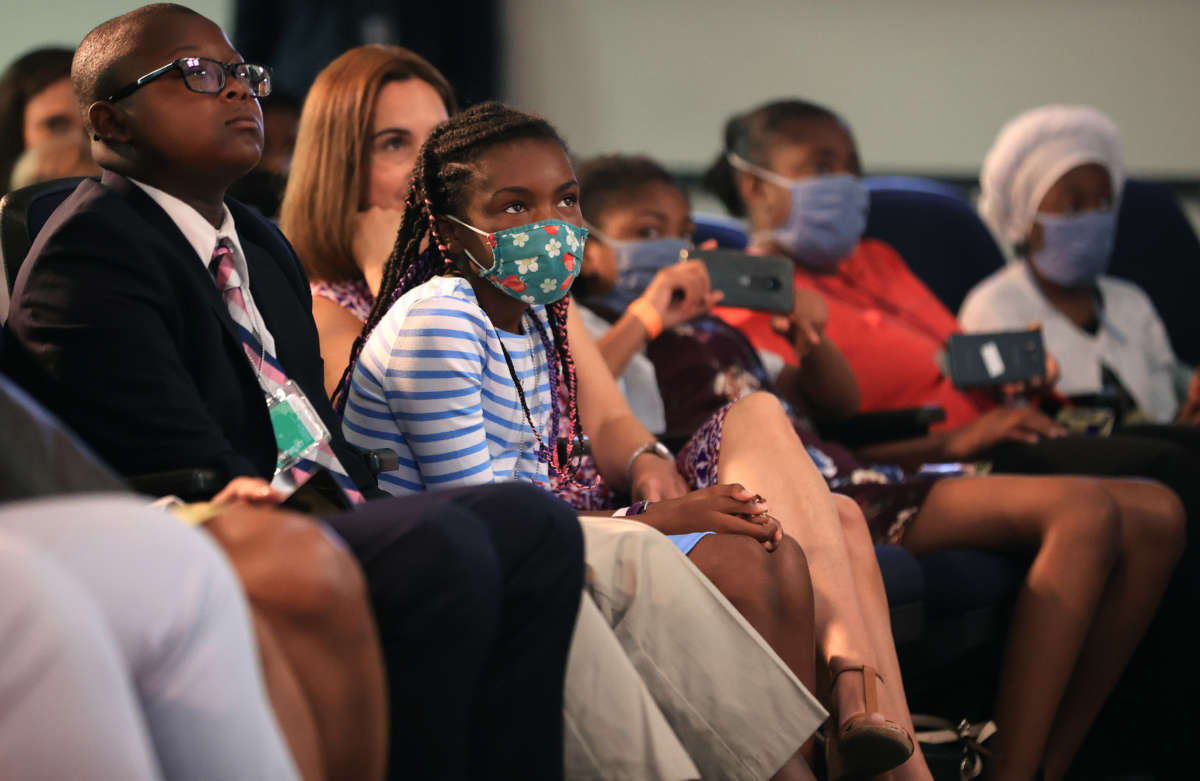Did you know that Truthout is a nonprofit and independently funded by readers like you? If you value what we do, please support our work with a donation.
New research finds that if the expanded child tax credit were made permanent, the social and economic benefits from the investment would far outweigh the costs of the program.
A working paper from Columbia University, Barnard College and Open Sky Policy Institute researchers finds that if low-income families with one child saw their income increase by $1,000 a year, the benefits would outweigh the cost of the program 10-fold.
While making the program permanent would cost the government $97 billion, it would create social benefits worth $982 billion. These benefits include direct impacts, like improved health and longevity for both children and parents and increased future earnings for the children, and indirect benefits, like lower crime rates. Taxpayers would also benefit, saving $135 billion in total, the research finds.
Working papers are often not yet peer reviewed or edited for publication in a journal. If the paper’s findings are true, it bolsters arguments from advocates of expanding the tax credit that the benefits of the program quite literally outweigh the costs.
Other research has found that the expanded child tax credit from the COVID stimulus bills, which gave families $300 a month for children under 6 and $250 a month for children aged 6 to 17, had a huge impact on the economy. Data released last month found that after the tax credit expired in January, child poverty increased by 41 percent, plunging 3.7 million children into poverty.
The credit came with a number of other benefits; food insufficiency rates decreased, consumer spending increased and the credit helped people keep their jobs, likely helping to pay for high child care costs.
Other surveys also showed that the tax credit was transformative for families. The Census Bureau has found that 91 percent of low-income families spent the credit on necessities, while 92 percent of families said that the payments helped improve their financial stability, according to a poll by SaverLife.
Democrats in Congress had sought to extend the child tax credit by 10 years, or to make it permanent. But conservative Sen. Joe Manchin (D-West Virginia) was vehemently opposed to the program, even though it was helping to keep children out of poverty. Democrats have vowed to keep working to get the proposal passed — but despite their attempts to pressure Manchin on the issue, the senator has been uninterested in discussing it.
Some conservatives have tried reviving the proposal by tying it to work requirements, but advocates say that adding hurdles would only weigh down the program and make it harder for the money to reach families who need it most.
The Child Tax Credit expansion lifted millions of kids out of poverty.
In the annals of American history we have never had a government program that so clearly and directly helped so many in such direct need.
Poverty is a policy choice. It’s not too late to renew the expansion.
— Robert Reich (@RBReich) March 22, 2022
Progressive lawmakers expressed frustration last year as Manchin demanded that they choose between the tax credit, paid family leave or child care funding proposals that were in some versions of the Build Back Better Act.
Some progressive lawmakers have called for reviving the expansion. “Another month without the expanded Child Tax Credit and working people continue to pay the price,” wrote Congressional Progressive Caucus Chair Rep. Pramila Jayapal (D-Washington) on Wednesday. “We have to fix this. Renew it now.”
A terrifying moment. We appeal for your support.
In the last weeks, we have witnessed an authoritarian assault on communities in Minnesota and across the nation.
The need for truthful, grassroots reporting is urgent at this cataclysmic historical moment. Yet, Trump-aligned billionaires and other allies have taken over many legacy media outlets — the culmination of a decades-long campaign to place control of the narrative into the hands of the political right.
We refuse to let Trump’s blatant propaganda machine go unchecked. Untethered to corporate ownership or advertisers, Truthout remains fearless in our reporting and our determination to use journalism as a tool for justice.
But we need your help just to fund our basic expenses. Over 80 percent of Truthout’s funding comes from small individual donations from our community of readers, and over a third of our total budget is supported by recurring monthly donors.
Truthout’s fundraiser ended last night, and we fell just short of our goal. But your support still matters immensely. Whether you can make a small monthly donation or a larger one-time gift, Truthout only works with your help.
